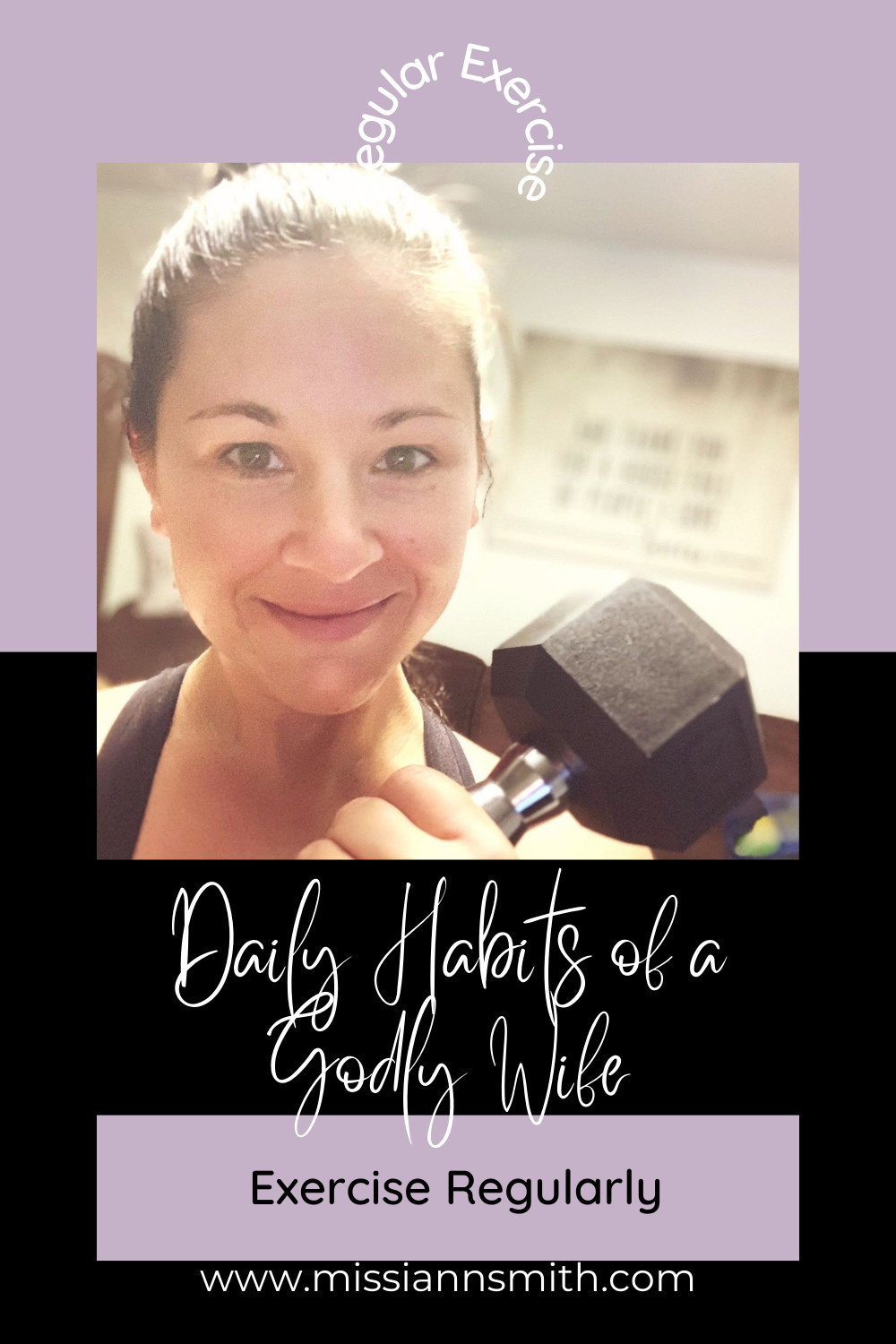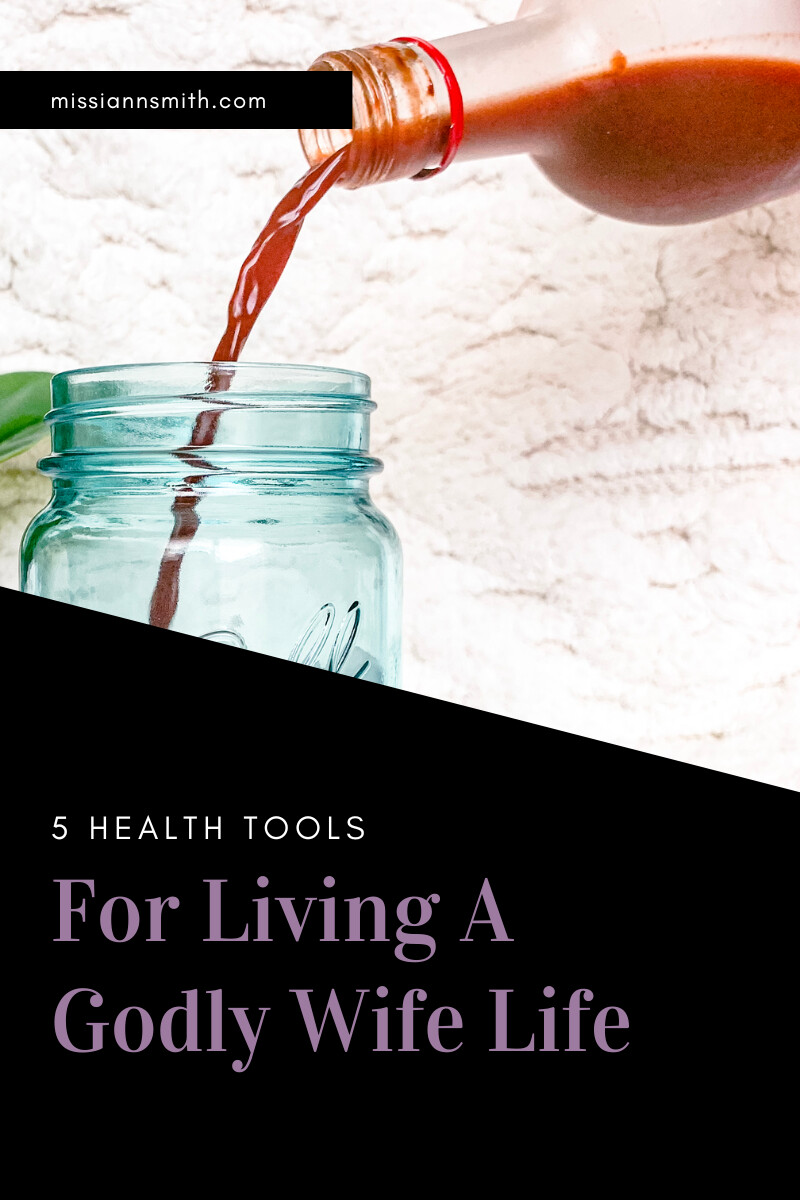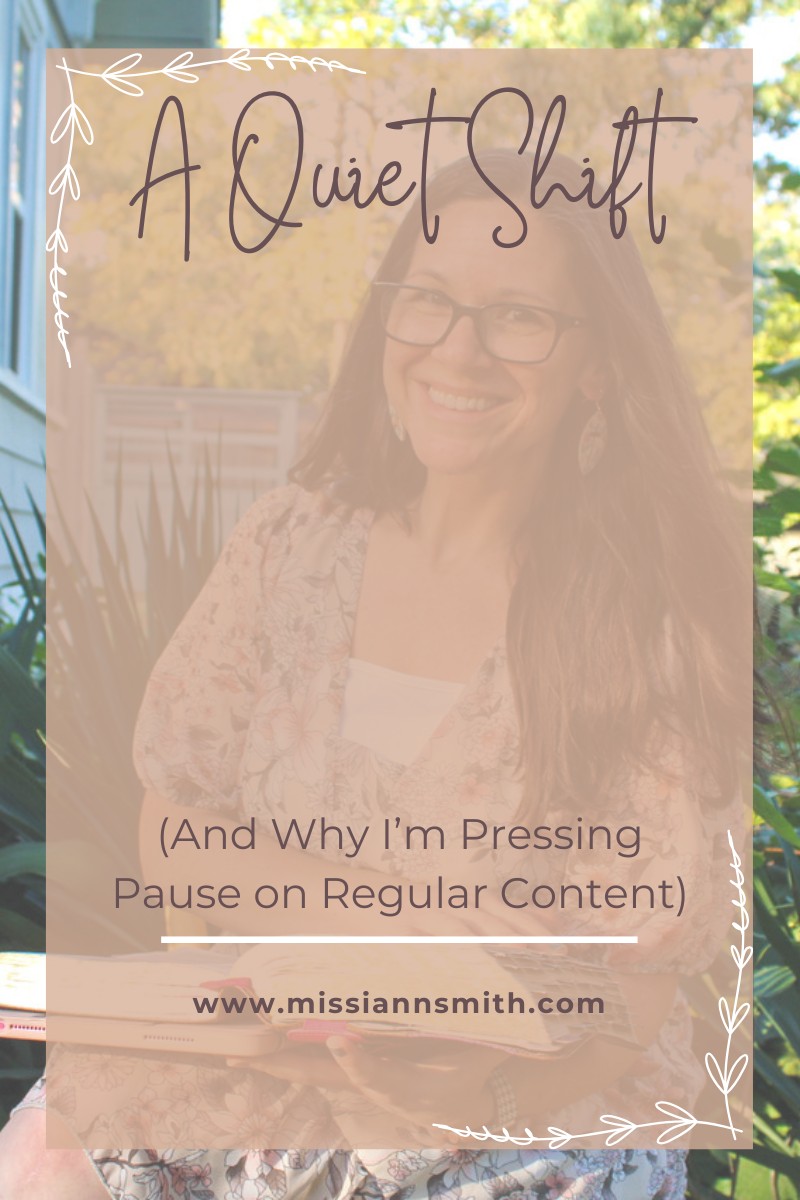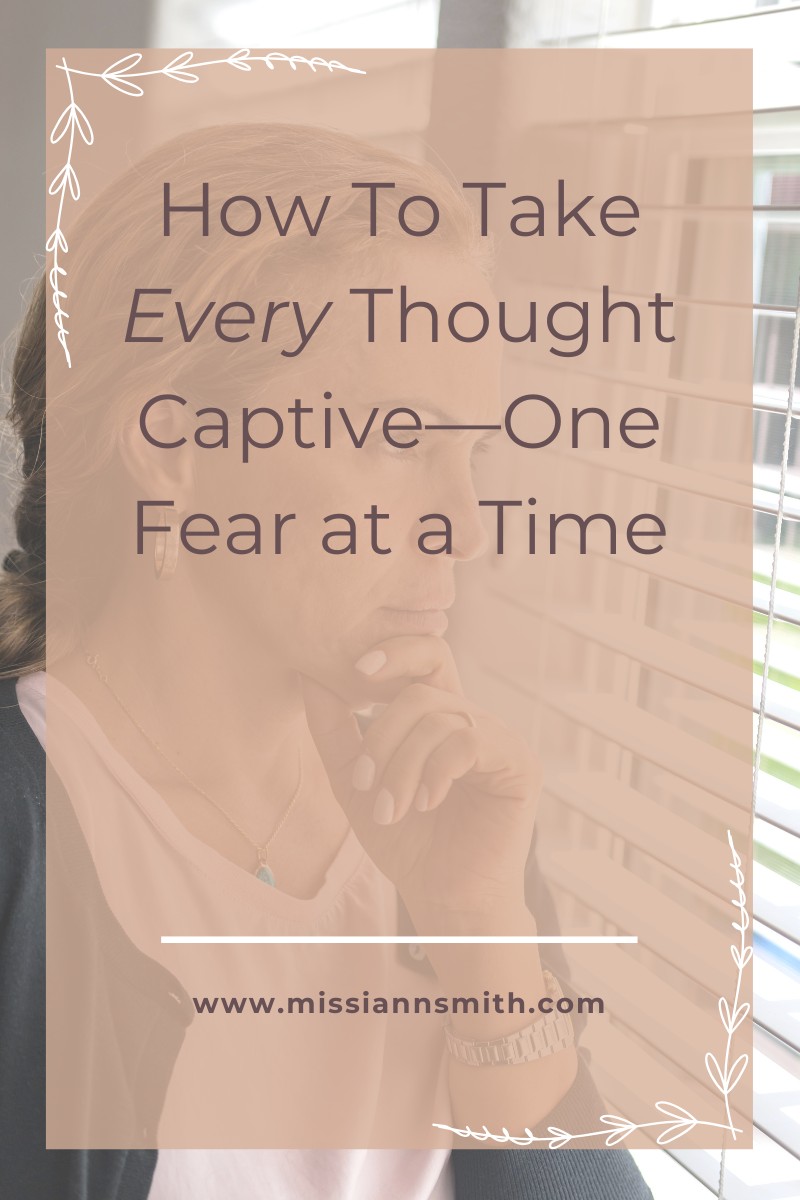
How often do you hear about nutrition as it relates to being a better wife (and this has NOTHING to do with weight loss or physical appearance!)?
When we treat our bodies well with proper nutrition, they function better, leading to improved emotional well-being. On the other hand, consuming excessive sugar and processed foods can leave our bodies struggling to process what they weren't designed to handle, leading to negative emotional effects such as lethargy, irritability, and anxiety.
Read the full post for a little bit about my own experience of maintaining a healthy diet despite being a busy mom. You'll find a few tips and suggestions for simple and convenient foods, along with how incorporating clean supplements into your routine can further support your physical and emotional health.
By prioritizing proper nutrition and taking care of your body, you will be better equipped to serve your husband and family.
Read more...
You know...but do you KNOW?
Scripture tells us our bodies are God's temples...and we shouldn't destroy God's temple.
Have you considered that a lack of exercise could be contributing to the destruction of your body, which is God's temple?
Click through to the full post for some tips on how to get started, a great FREE resource, and some ways that regular exercise can help your growth as a godly wife!
Read more...
Oftentimes the discussion around living a godly wife lifestyle has a lot to do with ensuring you're studying scripture and learning God's instructions and expectations.
This is the most important thing to do!
You can't become a godly wife when you don't know what you're supposed to be doing. Read the instructions (aka The Bible).
Likewise, it's very, very easy for us to fall back into sin when we aren't feeling well.
When we experience:
- fatigue
- exhaustion
- headaches
- sleeplessness
- irritability
- inability to concentrate
Despite knowing that we *should* submit to our husbands, and we *should* show them respect, we can often snap at them (or our children) when we're experiencing anything from the list above.
There are several tools related to this area of physical, mental, and emotional wellness that I have found to be extremely helpful.
1. MightyPro
This is a pre- and pro-biotic, technically formulated for kids, but I love it so I take as well. Gut health is HUGE. When our gut isn't healthy, it can throw everything else out of whack, like our immune system so we get sick more easily, it affects our emotions, brain function, everything.
It tastes like a Pixie Stick, so my 2-year-old loves it as well. He can't quite "shoot" it like a Pixie Stick, so my tip for little ones is to put it in a shallow bowl or cup and let them get it on their finger and lick it off.
2. NingXia Red
Ningxia Red is a powerful antioxidant supplement drink made from wolfberry puree that packs such a punch, you only need a tiny 2oz serving each day. This is another one that my little guy loves because it's delicious! NingXia provides total body wellness. Here are just a few of its benefits:
- Supports a healthy immune system
- Helps us be proactive against all the germs coming our way
- Provides energy support
- HUGE source of antioxidants
- Support brain and joint health
- Supports healthy hormone levels
- Supports healthy blood sugar levels
- Can help curb sugar cravings
- Whole-food, nutrient dense supplement full of vitamins, minerals, amino acids and polyphenols
3. Super B
Super B is a B complex supplement that is great for maintaining healthy energy levels, supporting mood and cardiovascular and cognitive function. Our current lifestyles often leave our adrenal system (our fight or flight response) on overdrive, and B vitamins are a great way to support that system!
NingXia Red and Super B work so well together to help with regulating all the body systems and having natural energy. If your energy is depleted, it's so much easier to get irritable and impatient.
4. Exercise
This is a HUGE factor. Exercise not only helps our body to maintain the movement it was designed to have regularly, but it also helps our organs and muscles to be challenged. Regular exercise ensures that our bodies burn calories, which is a natural function of the body. It helps us to increase energy, strength, stamina, sleep better, reduce stress, and just feel better.
If you don't yet exercise regularly, please check out BodyFit by Amy on YouTube. Her channel is full of FREE workouts that you can do at home, many of them with no equipment so you don't have to purchase a single thing. She offers modifications not only for beginners, but also for pre- and post-natal moms, as well as experienced exercisers who need to up-level.
God created plants, fruits, and trees with so many different functions, all for our benefit. Scripture speaks of using plants as medicine.
When choosing oils, you want to be sure they are of the highest quality and purity. This is why I choose Young Living. They are the only company that owns their own farms and is involved in the process from choosing the soil to packaging the product. They ensure quality the entire way through with their Seed to Seal Promise, never leaving anything to chance. They perform rigorous testing, using third parties, and will often allow an item to go out of stock simply because it doesn't meet their high quality standards. You get what you pay for, and in order to ensure the health of my family, I will gladly pay for the quality, purity, and expertise I know goes into each Young Living product.
Here are some oils I would recommend for us with helping to regulate emotions:
Valor (helps with anxiety)
I recommend diffusing in your bedroom nightly to help with getting restorative sleep each night.
The most important thing is to take care of your health with good food, sleep, water, exercise, and ensure you are studying God's Word every single day.
The other measures won't mean anything if you aren't plugged into Him as your source of power.
They are simply tools that He has created in order to help you in your journey.
I am so grateful for these tools and will gladly accept them from Him! Will you?
If you have questions any any or all of these, please reach out and let me know. One of my goals is to make sure that we are being good stewards of our finances, and that means helping you save money. Please reach out to me so that I can help you place your first order and get the best deal possible for you and your family.
Which of these areas do you struggle with the most?
Fatigue, irritability, focus, something else?
Share in the comments and let me know how I can pray for you.

When you're in a difficult season, it's so easy to feel defeated.
- When your child is a prodigal.
- When your marriage is falling apart.
- When your doctor gives you a terrible diagnosis.
- When a loved one dies.
- When you lose a home, a job, or a friendship.
- When finances are tight, or non-existent.
It can be SO easy to think to yourself, "If only this would change, I could be happy. If only..."
What does God have to say about things like this?
First, we are to weep with others when they weep. When you find yourself in a season of weeping, you allow yourself to weep and work through those emotions, and you surround yourself with people who, like Job's friends, will just sit in the weeping with you.
Second, you lean into God as your source of comfort, of relief, and of your JOY.
Scripture tells us in Romans 18:18:
For I consider that the sufferings of this present time are not worth comparing with the glory that is to be revealed to us."
It's important to remember that nothing happening to us on earth can compare to the beauty and indescribable joy awaiting us in eternity.
When we get there, nothing here will matter anymore. All that will matter is being in the presence of Jesus.
Yes, it's painful to think about your child rejecting God and missing out on this glory. It's painful to walk through a divorce, or scary medical diagnosis, or a betrayal.
But when you feel as though you need your child's salvation, or your marriage to be a godly marriage, or you need to have all of your bills paid, in order to feel joy, then you have elevated those things ABOVE Jesus.
When you seek something other than Jesus for your joy, you've made that thing an idol.
Christ is sufficient for us.
2 Corinthians 5:8 tells us
And God is able to make all grace abound to you, so that having all sufficiency in all things at all times, you may abound in every good work."
We have all sufficiency, in ALL things, at ALL times. And the reason for this is so that we can abound in every good work.
It's difficult to do good works when we're anxious, depressed, waiting on something else to bring us joy, isn't it?
Sweet friend, you don't have to wait to do good. You don't have to wait to find JOY.
Psalm 16:11
You make known to me the path of life; in your presence there is fullness of joy; at your right hand are pleasures forevermore.
James 1:2-4
Count it all joy, my brothers, when you meet trials of various kinds, for you know that the testing of your faith produces steadfastness. And let steadfastness have its full effect, that you may be perfect and complete, lacking in nothing.
Proverbs 10:28
The hope of the righteous brings joy, but the expectation of the wicked will perish.
When we place our focus on Christ, and recognize His sufficiency and ability to BE our complete joy, we will have that joy in abundance - even when we aren't getting the earthly things we want or think we need.
Can you believe this today?
Can you believe Christ alone is sufficiently able to bring you all joy and peace, regardless of your earthly circumstances?
Comment below and let me know how I can pray over you today.

Picture this: Christmas morning, you wake up, make a cup of coffee (or tea), and everyone gathers around the tree to open up gifts.
You're SO excited, because you wrapped up the PERFECT gift for your kid. They've been begging you for this over and over again, sometimes with tears in their eyes, for MONTHS.
As the pile of presents grows smaller and smaller with each gift opened, you see that shiny, beautifully wrapped, ribbon-laden box with the tag that has your child's name on it.
They reach for it, and you hold your breath as they tear off the paper and open the lid to see what's inside.
Overwhelming joy rushes out of them as they thank you and hug you and thank you some more. You can't help but feel like Best Mom In the Universe!
The next day, you notice the box is still there, with the gift still inside. A week later, it hasn't been touched or moved.
A month later, your kid comes to you with tears, begging for this one gift again. You remind them that you've already given it to them, and their response is, "But...I keep forgetting it's there, and when I remember, the instructions just seem too difficult!"
And this amazing gift sits unused, because your child has made the choice to not take hold of it.
This, my sweet friend, is what we often do with Jesus' gift of PEACE.
In John 14:27, Jesus says, "Peace I leave with you; my peace I give to you. Not as the world gives do I give to you. Let not your hearts be troubled, neither let them be afraid."
We beg Him for it, with tears in our eyes. He hands it to us in a shiny package called the Bible, wrapped in the Holy Spirit, and we leave it to sit unused.
Does that sound familiar to you, even just a little bit?
Yes, His peace comes with instructions, but they are clearly laid out for us and simple to follow.
Not easy - sometimes it's much easier to NOT follow them. Which is probably why we make the choice to ignore them, and then His peace sits unused yet again. But friend, that is OUR choice. God isn't taking that gift back, or hiding it from us. It's sitting right where we left it; we're just making the choice to ignore it and His instructions.
If you struggle with feelings of depression, anxiety, fear, worry, helplessness, hopelessness, or anything like those, please know that Jesus has already given you His peace. It is YOURS. It cannot be taken away from you. You can choose to ignore it, or you can choose to read the instructions and learn how to use it. But the gift is YOURS and the choice is YOURS.
I would be honored to talk more about this with you and pray with you. Please feel free to reach out to me at missiannsmith@gmail.com anytime!
To make sure you never miss a blog post, sign up here.
If you're feeling exhausted, grab my free guide on 5 Ways to Boost Your Energy here.












